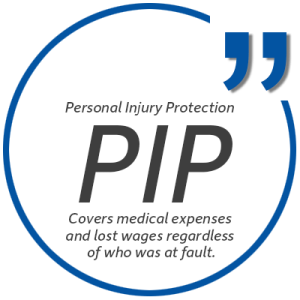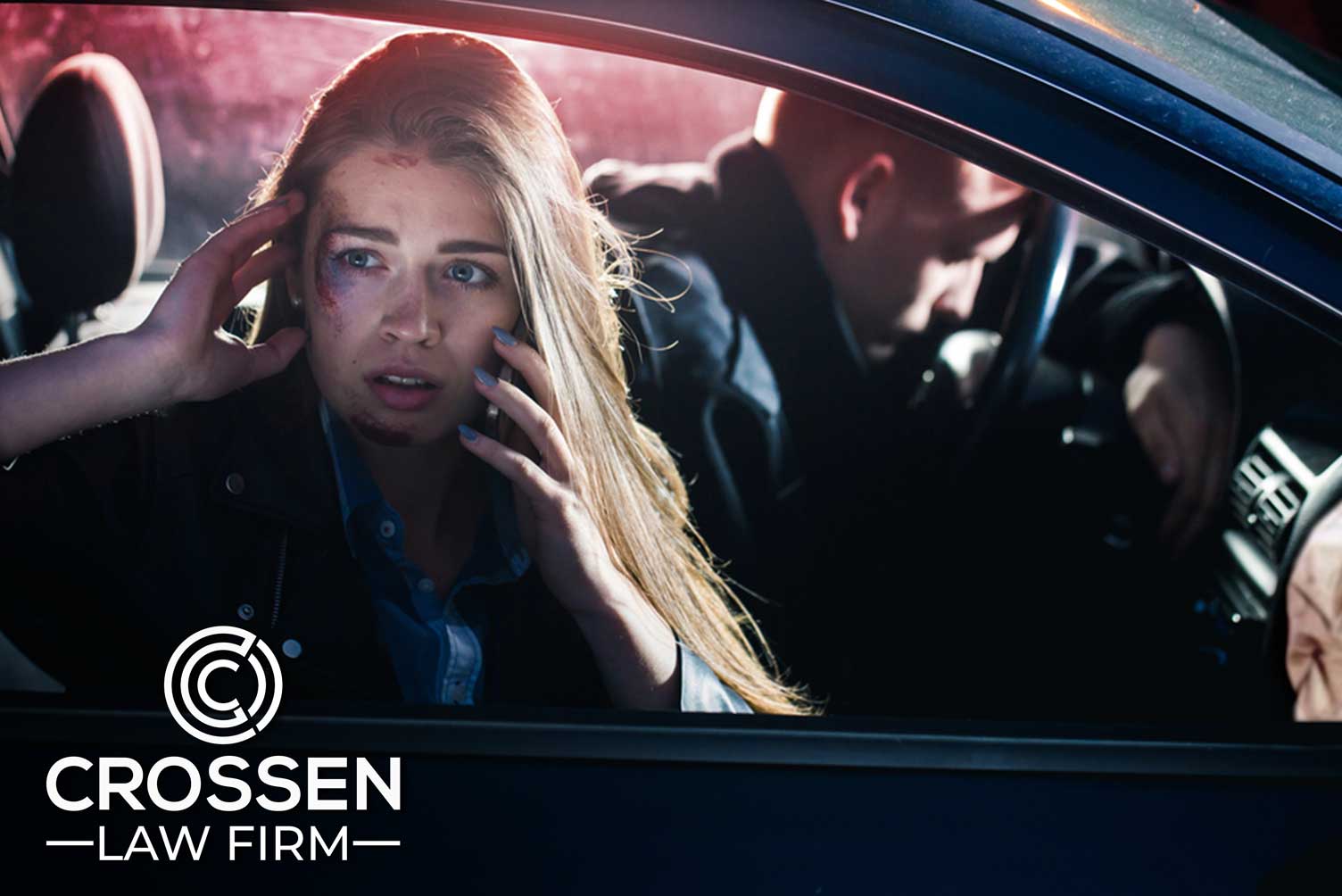
Being involved in a car accident is always a stressful experience, but it can be particularly confusing if you’re a passenger in a car. You may be wondering, what are my rights if i was injured in a car accident as a passenger?
This comprehensive guide will walk you through everything you need to know about your rights and how to seek fair compensation for your injuries.
Immediate Steps to Take After a Car Accident
1. Ensure Safety and Seek Medical Attention: Your first priority after a car crash should be your safety and the safety of others involved.
2. Document the Crash Scene: If you’re able, take photos of the vehicle involved, the surrounding area, and any visible injuries for your insurance claim.
3. Exchange Information: Obtain contact and insurance details from all drivers involved in the accident.
4. File a Report: Ensure that the police are called to the scene and that an official report is filed.
Understanding Your Rights as a Passenger
When involved in an accident as a passenger, you have specific rights that protect you and allow you to seek compensation for your injuries. Unlike drivers, passengers are rarely considered at fault in an accident, which typically means a clearer path to pursuing claims for medical costs, lost income, and other damages.
Determining Liability in a Car Accident
Liability in a car accident usually falls on one or more of the drivers involved. However, determining who is at fault can be complex.
It could be:
- The driver of the car you were in
- The driver of another car involved
- A third party, such as a vehicle manufacturer if a defect, such as a fault steering wheel, caused the accident
A responsive injury attorney can help the injured passengers navigate this process and identify the potentially liable parties.
Types of Injuries in Auto Accidents
Auto accidents can result in a wide range of injuries, from minor bruises to serious injuries that can have long-lasting effects on your life.
Some common injuries include:
- Whiplash
- Broken bones
- Spinal cord injuries
- Traumatic brain injuries
- Internal organ damage
- Cuts and bruises
Remember, even if you don’t feel pain immediately after the accident, some injuries may not be apparent right away. This is why seeking prompt medical care is crucial for each injured passenger.
Understanding Insurance Policies
Navigating the world of auto insurance can be complex, especially when you’re dealing with a personal injury claim.
Here’s a breakdown of the different types of insurance policies that may come into play:
- Personal Auto Insurance: This is the insurance policy you carry on your own vehicle. It may provide coverage even if you’re a passenger in someone else’s car.
- Other Driver’s Insurance Policy: The other driver’s insurance should cover your injuries and damages.
- Car Insurance Policy of the Vehicle You Were In: If you were in an accident as a passenger in a car, the car insurance of the car you were riding in might provide coverage.
- Uninsured/Underinsured Motorist Coverage: This part of your car insurance can help if the other driver doesn’t have enough insurance.
Each of these policies may offer different insurance benefits, and understanding how they interact is crucial for maximizing your compensation.
The Role of Auto Insurance Companies
When you file a personal injury claim, you’ll likely be dealing with one or more auto insurance companies. These companies will investigate the motor vehicle collision and assess the damages.
However, it’s important to remember that their primary goal is to minimize payouts. This is why having an experienced personal injury attorney on your side is crucial.
Your attorney can help you:
- Understand the terms of the other driver’s insurance policy
- Communicate effectively with insurance adjusters
- Negotiate for compensation
- Pursue legal action if necessary
Wrongful Death Claims
In the tragic event that a passenger loses their life in a car accident, their family may be able to file a wrongful death claim. These personal injury cases are particularly complex and emotionally challenging. An experienced personal injury attorney can guide families through this difficult process and help them seek justice for their loved one.
The Importance of the Accident Report
The official report filed by law enforcement is a crucial piece of evidence in your injury claim.
This report typically includes:
- Details about the vehicles involved
- Statements from drivers and witnesses
- The officer’s assessment of the crash scene
- Any citations issued
Your attorney will use this report, along with other evidence, to build a strong case for your compensation. Call us at 317-401-8626.
Dealing with Uninsured Motorists
If you’re involved in an accident with an uninsured motorist, you still have a few options for seeking compensation:
- Your own uninsured motorist coverage
- Personal injury protection (PIP) coverage
- Medical payments coverage
- A personal injury lawsuit against the at-fault driver
Your attorney can help you explore these options and determine the best course of action.
Medical Treatment and Documentation
Seeking prompt treatment is crucial after a motor vehicle accident. Some injuries might not show symptoms immediately, so a thorough medical check can detect issues that might otherwise go unnoticed.
Keep detailed records of all medical treatments. This documentation will be vital when filing an insurance claim or pursuing legal action to recover medical costs.
Insurance Claims and Compensation
Several types of insurance may cover your injuries as a passenger in a car accident:

1. Personal Injury Protection (PIP): Covers medical expenses and lost wages regardless of who was at fault.
2. Medical Payments Coverage (MedPay): Pays for medical bills incurred from the accident that your health insurance doesn’t cover.
3. Bodily Injury Liability: Covers damages if the other driver is at fault.
4. Health Insurance: Your personal health insurance policy may cover some medical bills.
5. Uninsured/Underinsured Motorist Coverage: Provides protection if the other driver’s insurance won’t cover your damages.
Calculating Compensation
Compensation for an auto accident can include:
- Medical expenses
- Lost wages
- Pain and suffering
- Property damage of personal property
- Other related costs
The amount will depend on the severity of your injuries, the impact on your life, and the insurance policies involved. A personal injury lawyer can help ensure you seek the maximum compensation available.
Dealing with Insurance Companies After a Car Crash
When dealing with insurance adjusters, be clear and concise. Provide the necessary documentation and avoid making statements that could be used against you. It’s often beneficial to have your attorney handle these communications to protect your interests.
If your auto accident claim is denied or the settlement offer from the insurance company is too low, don’t give up. Your attorney can negotiate on your behalf and, if necessary, file a lawsuit to ensure you receive fair compensation.
Special Considerations for Different Types of Accidents
Multi-Vehicle Accidents: A two-car accident or multi-vehicle accident adds complexity to determining liability. In these cases, multiple drivers may share fault, and sorting out who owes what can be challenging. Legal assistance is often crucial in these scenarios.
Ride-Sharing Accidents: If you were a passenger in a ride-sharing vehicle like Uber or Lyft, additional insurance coverages might apply. These companies typically have policies that cover passengers, but the process can be complicated. Your attorney can help you navigate these specific circumstances.
Rental Car Accidents: If the accident occurred in a rental car, there may be additional insurance policies to consider, such as those provided by the rental company or through the credit card used to rent the vehicle.
Steps to Take When Pursuing Compensation
1. Gather Evidence: Collect all relevant evidence, including:
- The accident report
- Photos from the scene
- Witness statements
- Medical records
- Bills for medical treatment and other expenses
2. Notify Insurance Companies: Inform both your own insurer and the other driver’s auto insurance company about the accident. Be cautious when speaking with insurance adjusters and consider having your attorney handle these communications.
3. Keep Detailed Records: Maintain a file with all accident-related documents, including:
- Medical bills
- Receipts for out-of-pocket expenses
- Documentation of lost wages
- Records of pain and suffering
4. Consult with a Personal Injury Attorney: A trustworthy attorney can help you understand your rights and pursue fair compensation for your injuries.
5. File a Claim: Your attorney can help you file claims with the appropriate insurance company and see that all necessary information is included.
6. Negotiate a Settlement: Your lawyer will negotiate with the insurance company to seek a just settlement that covers all your damages.
7. File a Lawsuit: If a fair settlement cannot be reached through negotiations, your attorney may recommend filing a lawsuit to pursue your claim in court.
Frequently Asked Questions
Can I file a claim if I wasn’t wearing a seatbelt?
Yes, you can still file a claim even if you weren’t wearing a seatbelt. However, not wearing a seatbelt might affect the amount of compensation you receive, as it could be argued that your injuries were more severe due to this factor.
How long do I have to file a claim with the insurance company?
The statute of limitations for these claims varies by state. In many states, including Indiana, it’s typically two years from the date of the accident. It’s essential to act promptly to ensure your claim is filed within this timeframe.
What if the at-fault driver is uninsured or underinsured?
If the driver at fault doesn’t have enough insurance to cover your damages, you might be able to file a claim under your own uninsured/underinsured motorist coverage. Your attorney can help you explore all available options for compensation.
Can I seek compensation for emotional distress?
Yes, you may be able to pursue compensation for emotional distress as part of your pain and suffering damages. This can include anxiety, depression, or PTSD resulting from the accident.
What if I was partially at fault for the accident?
Even if you were partially at fault, you may still be able to recover damages, depending on your state’s laws. Many states use a comparative negligence system, which reduces your compensation based on your percentage of fault.
How is fault determined in a car accident?
Fault is typically determined through a combination of factors, including:
- Police reports
- Witness statements
- Physical evidence from the scene
- Expert analysis
Your injury attorney will work to gather and present evidence to prove fault and maximize your compensation after being injured in a car accident.
File Your Personal Injury Claim With Crossen Law Firm
Understanding your rights as a passenger injured in a car accident is crucial for ensuring you receive the compensation you deserve. Remember to seek immediate medical attention, document everything, and consult with a committed injury attorney to guide you through the claims process.
By following these guidelines and working with a skilled car accident attorney, you can protect your rights and work towards a fair settlement that covers your medical bills, lost wages, and other property damages resulting from the accident.
If you’ve been injured as a passenger in a car accident, don’t hesitate to reach out to Crossen Law Firm for a free consultation. Our experienced team of personal injury lawyers is here to help you navigate the complexities of your case and fight for the compensation you deserve.
We understand the challenges you face and are here to offer compassionate support and dedicated legal counsel.
Stay informed with our latest insights on legal developments that could impact your case, presented in a clear and accessible format, including car accidents blog posts and other resources. Contact us today at 317-401-8626 or online.

 317-401-8626
317-401-8626 
.jpg)